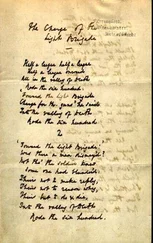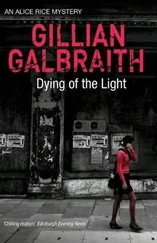Michael Dibdin - The Dying of the Light
Здесь есть возможность читать онлайн «Michael Dibdin - The Dying of the Light» весь текст электронной книги совершенно бесплатно (целиком полную версию без сокращений). В некоторых случаях можно слушать аудио, скачать через торрент в формате fb2 и присутствует краткое содержание. Жанр: Классический детектив, на английском языке. Описание произведения, (предисловие) а так же отзывы посетителей доступны на портале библиотеки ЛибКат.
- Название:The Dying of the Light
- Автор:
- Жанр:
- Год:неизвестен
- ISBN:нет данных
- Рейтинг книги:5 / 5. Голосов: 1
-
Избранное:Добавить в избранное
- Отзывы:
-
Ваша оценка:
- 100
- 1
- 2
- 3
- 4
- 5
The Dying of the Light: краткое содержание, описание и аннотация
Предлагаем к чтению аннотацию, описание, краткое содержание или предисловие (зависит от того, что написал сам автор книги «The Dying of the Light»). Если вы не нашли необходимую информацию о книге — напишите в комментариях, мы постараемся отыскать её.
The Dying of the Light — читать онлайн бесплатно полную книгу (весь текст) целиком
Ниже представлен текст книги, разбитый по страницам. Система сохранения места последней прочитанной страницы, позволяет с удобством читать онлайн бесплатно книгу «The Dying of the Light», без необходимости каждый раз заново искать на чём Вы остановились. Поставьте закладку, и сможете в любой момент перейти на страницу, на которой закончили чтение.
Интервал:
Закладка:
Dorothy’s voice was raucous with what might have been either terror or triumph, but which in either case Rosemary felt an urgent need to dispel.
‘I really couldn’t say, Dot,’ she replied deliberately. ‘But I have no doubt that there’s some perfectly logical explanation. What does it matter, anyway?’
The grip on her wrist abruptly ceased.
‘It doesn’t matter,’ Dorothy replied in a dull voice. ‘It doesn’t matter in the slightest.’
Rosemary remained standing there awkwardly for some time. Once again, she felt that she had unjustly been put in the wrong.
‘Good night, then,’ she said, a trifle coolly.
‘Goodbye, Rose.’
Rosemary turned and moved cautiously across the room towards the door. As she reached it, she seemed to hear her friend’s voice in the darkness behind her, saying what sounded very much like, ‘I love you.’ But the words were very faint, and it was perfectly feasible for Rosemary to spare them both further embarrassment by pretending not to have heard.
CHAPTER 6
She awoke with a sensation of having just left a room in which some terrible scene was taking place. The door had slammed shut behind her, and the voices raised in fury or fear were now just a fading memory. For an instant she seemed to hold the whole thing clear in her mind: she knew who had done what, to whom, and why. No sooner did she examine it, however, than this seemingly inexorable logic revealed itself to be no more than a string of feeble contrivances, rather like the plots of the detective stories with which she had used to read herself to sleep. But while those stabbings, shootings and poisonings had generated only a pleasing drowsiness, the anonymous voices in her dream had raised a terror which was still real.
The sunlight which had wakened her streamed in through the window, making even the worn rug and stained wallpaper look fresh and gay. Brusquely shaking off the torpor which was the legacy of her shallow, broken sleep, Rosemary got out of bed and went to the handbasin in the corner to douse herself with cold water. She had enough real problems on her plate, heaven knew, without indulging in that sort of nonsense!
The air was still chilly, and her breath flared in the beams of sunlight as she scrubbed and towelled. She had deliberately not drawn the curtains before going to bed the night before. Dorothy was not by nature an early riser, and it had become their habit for Rosemary to go to her room and rouse her. Never had it been more essential for Rosemary to be at her friend’s side than this morning, when Dorothy awoke to the reality of her imminent departure.
Although Rosemary had been heartened by the show of composure which Dorothy had put on the night before, she had no great hopes that the effect would last. It was one thing to be brave in advance, she knew, but quite another to retain that equanimity when the moment of truth finally arrived. Which was where she came in, as she always had. As long as Dorothy remained at the Lodge, Rosemary would be with her every instant-and even once they were separated, she would be with her in spirit!
The idea she had thrown out the night before as though it were an inspiration of the moment was in fact something to which Rosemary had devoted a considerable amount of thought. She knew it would prove a huge challenge, but that merely gave her a further incentive to bring it off. Such a challenge was just what she was going to need to see her through the weeks and months ahead. It would distract her attention from the anguish she could do nothing about, and focus it on a problem entirely of her own making and subject to her control.
There would be no time to brood on her own loneliness or indulge in gloomy speculations about what might be happening to Dorothy. Each moment of every day would be dedicated to working out the next episode of the murderous events at Eventide Lodge, a story so effortlessly complex, so endlessly fascinating, so flawlessly spellbinding, that reality would pale by comparison. Even the ordeals which Dorothy had to endure would be reduced to the status of a minor irritation, an annoying distraction when you are trying to read. This time, at least, the tyranny of the real would not prevail. Rosemary’s alternative account, tight and compelling, never losing its thread or disappointing the expectations it had created, would triumph in the end. She would answer for that!
The major problem that had to be overcome was the practical one of ensuring that the letters got through. There would be no difficulty at the hospital, of course, despite what Dorothy had rather oddly claimed the night before. She would be able to send and receive as many letters as she liked, at least unless-even to herself, Rosemary avoided the word ‘until’-her condition deteriorated markedly.
Rosemary’s position was very different. Although the residents of Eventide Lodge were in theory free to write to their friend and relatives, the letters handed over to Mr Anderson to be posted seemed to fall into a void. Replies either failed to materialise or, almost more disturbing, made no reference to the concerns expressed in the outgoing letter.
‘Why should your nearest and dearest waste their precious time scribbling wish-you-were-here’s when they’re paying William and I good money to make damn sure you aren’t?’ demanded Miss Davis rhetorically, and although some of the residents, including Rosemary, suspected that their post was being tampered with, this was impossible to prove. Residents were forbidden to use the telephone, on the pretext that Mr Purvey had thrown a fit when one of his relatives hung up on him, and personal visits had virtually ceased. ‘Out of sight and out of our minds,’ Mrs Hargreaves had remarked sadly one day, which had just about seemed to sum it up.
The present situation, however, was quite different. During the long hours of a largely sleepless night, Rosemary had worked out a system which she would agree with Dorothy prior to the latter’s departure, and which was designed to make it obvious if their letters were being intercepted. Like all good ideas, it was in essence very simple. Every other day Rosemary would dispatch a letter to Dorothy containing the latest episode of the unfolding mystery, ending with the sort of question which traditionally concluded each chapter in a story of this type. ‘Who was the mysterious figure who was seen entering Mr Purvey’s room shortly before the body was discovered?’, for example, or ‘Why did Mrs Hargreayes try and take the wrong mug of cocoa, and what is the connection between this and the fragmentary conversation supposedly overheard by George Channing?’
The whole point of detective stories, of course, was that there always was a connection. Even if there wasn’t, that was equally significant. It was thus a perfect medium of communication in a situation such as this. All Dorothy need do was send a brief message in reply-a few words on a postcard would suffice-alluding to the developments left hanging. If she felt well enough, she might even assay some suggested solution which Rosemary would then tear to shreds, in the nicest possible way, by return of post. There remained the question of what sanctions to take if it became clear that their letters were not getting through. From what Rosemary had overheard the previous day, she knew Anderson was deeply worried that Dorothy might tell the hospital staff what had happened to Channing. She also knew why. Mrs Anderson, the founder and former owner of the Lodge, had been at considerable pains to reassure the residents-many of whom had become her friends-about what would happen in the event of her death. ‘I’ve left it all to William,’ she’d explained, ‘but only on condition that all of you continue to be properly looked after for the remainder of your lifetimes.’ This stipulation had in fact been the original germ of the murder story. As Rosemary had remarked to Dorothy one day, Mrs Anderson had, with the best intentions in the world, given her son a perfect motive to kill them all.
Читать дальшеИнтервал:
Закладка:
Похожие книги на «The Dying of the Light»
Представляем Вашему вниманию похожие книги на «The Dying of the Light» списком для выбора. Мы отобрали схожую по названию и смыслу литературу в надежде предоставить читателям больше вариантов отыскать новые, интересные, ещё непрочитанные произведения.
Обсуждение, отзывы о книге «The Dying of the Light» и просто собственные мнения читателей. Оставьте ваши комментарии, напишите, что Вы думаете о произведении, его смысле или главных героях. Укажите что конкретно понравилось, а что нет, и почему Вы так считаете.












